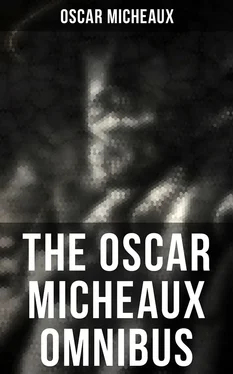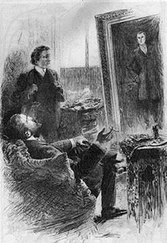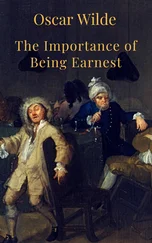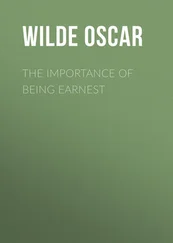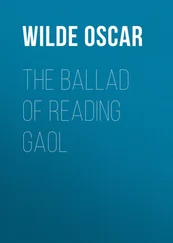CHAPTER XV
"WHICH TOWN WILL THE R.R. STRIKE?"
Table of Contents
The drummer's information soon received corroboration from other sources, and although it seemed almost unbelievable, it was discussed incessantly and excitement ran high. These pioneers, who had braved the hardships of homestead life had felt that without the railroad they were indeed cut off from civilization. To them the advent of the surveyors in Oristown could mean only one thing—that their dreams of enjoying the many advantages of the railroad train, would soon materialize
They fell to enumerating these advantages—the mail daily, instead of only once or twice a week; the ease with which they could make necessary trips to the neighboring towns; and most of all—the increase in the value of the land. With this last subject they became so wrought up with excitement and anxiety as to the truth of the report, that they could stay away from the scene of action no longer. Accordingly, buggies and vehicles of all descriptions began coming into Oristown from all directions. I hitched Doc and my new horse, Boliver, for which I had paid one hundred and forty dollars, to an old ramshackle buggy I had bought for ten dollars, and joined the procession.
Three miles west of Oristown we came upon a crowd of circus-day proportion, and in their midst were the surveyors.
In their lead rode the chief engineer—a slender, wiry man with a black mustache and piercing eyes, that seemed to observe every feature of surrounding prairie. Behind came a wagon loaded with stakes, accompanied by several men, the leader of whom was setting these stakes according to the signal of the engineer from behind the transit. Others, on either side, were also driving stakes. They were not only running a straight survey, but were cross-sectioning as they went.
Even though the presence of these surveyors was now an established fact, these were days of grave uncertainties as to just what route the road would take. The suspense was almost equal to that of the criminal, as he awaits the verdict of the jury. The valleys and divides lay in such a manner that it was possible the survey would extend along the Monca, thus passing through Calias. On the other hand, it was probable that it would continue to the Northwest through Kirk and Megory, thus missing Calias altogether.
When the surveyors reached a point five miles west of Hedrick, they swerved to the northwest and advanced directly toward Kirk. This looked bad for Calias.
When Ernest Nicholson had learned that the surveyors were in Oristown, he had left immediately for parts unknown and had not returned. He was in reality the founder of Calias and many of the inhabitants looked to him as their leader, and depended upon him for advice. Although he had many enemies who heaped abuse and epithets upon him—calling him a liar, braggard and "wind jammer" when boasting of their own independence and self respect—now that a calamity was about to befall them, and their fond hopes for this priceless mistress of prairie were about to be wrecked upon the shoals of an imaginary railroad survey, they turned toward him for comfort, as moths turn to a flame. It was Ernest here and Ernest there. As the inevitable progress of the surveyors proceeded in a direct line for Hedrick, Kirk and Megory, the consternation of the Caliasites became more intense as time went on, and the anxiety for Ernest to return almost resolved itself into mutiny. It became so significant, that at one time it appeared that if Ernest had only appeared, the railroad company would have voluntarily run its survey directly to Calias, in order to avoid the humiliation of Ernest's seizing them by the nape of the neck and marching them, survey, cars and all, right into the little hamlet.
Now there was one thing everybody seemed to forget or to overlook, but which occurred to me at the time, and caused me to become skeptical as to the possibilities of the road striking Calias, and that was, if the railroad was to be built up the Monca Valley, then why had the surveyors come to Oristown, and why had they not gotten off at Anona, the last station in the Monca Valley, where the tracks climb the grade to Fairview.
Many of the Megory and Kirk boosters had taken advantage of Ernest's absence, and through enthusiasm attending the advent of the railroad survey, persuaded several of Calias' business men to go into fusion in their respective towns. The remaining handful consoled each other by prophecies of what Ernest would do when he returned, and plied each other for expressions of theories, and ways and means of injecting enthusiasm into the local situation. Thousands of theories were given expression, consideration, and rejection, and the old one that all railroads follow valleys and streams was finally adhered to. I was singled out to give corroborative proof of this last, by reason of my railroad experience.
I was suddenly seized with a short memory, much to my embarrassment, as I felt all eyes turned upon me. However, the crowd were looking for encouragement and spoke up in chorus: "Don't the railroads always follow valleys?" It suddenly occurred to me, that with all the thousands of miles of travel to my credit and the many different states I had traveled through, with all their rough and smooth territory, I had not observed whether the tracks followed the valleys or otherwise. However, I intimated that I thought they did. "Of course they do", my remark was answered in chorus.
Since then I have noticed that a railway does invariably follow a valley, if it is a large one; and small rivers make excellent routes, but never crooked little streams like the Monca. When it comes to such creeks, and there is a table land above, as soon as the road can get out, it usually stays out. This was the situation of the C. & R.W. It came some twenty-five or thirty miles up the Monca, from where it empties into the Missouri. There are fourteen bridges across in that many miles, which were and still are, always going out during high water.
It came this route because there was no other way to come, but when it got to Anona, as has been said, it climbed a four per cent grade to get out and it stayed out.
Table of Contents
The first day of May was a local holiday in Megory, held in honor of the first anniversary of the day when all settlers had to be on their claims; and it was raining. During the first years on the Little Crow we were deluged with rainfall, but this day the inclement weather was disregarded. It was Settler's Day and everybody for miles around had journeyed thither to celebrate—not only Settler's Day, but also the advent of the railroad. Only the day before, the surveyors had pitched their tents on the outskirts of the town, and on this day they could be seen calmly sighting their way across the south side of the embryo city. Megory was the scene of a continuous round of revelry. Five saloons were crowded to overflowing, and a score of bartenders served thousands of thirsty throats; while on the side opposite from the bar, and in the rear, gambling was in full blast. Professionals, "tin horns", and "pikers", in their shirt sleeves worked away feverishly drawing in and paying money to the crowd that surged around the Roulette, the Chuck-luck, and the Faro-bank. It seemed as though everybody drank and gambled. "This is Megory's Day", they called between drinks, and it would echo with "have another," "watch Megory grow.
Written in big letters and hung all along the streets were huge signs which read "Megory, the gateway to a million acres of the richest land in the world." "Megory, the future metropolis of the Little Crow, Watch her grow! Watch her grow!" The board walk four feet wide could not hold the crowd. It was a day of frenzied celebration—a day when no one dared mention Nicholson's name unless they wanted to hear them called liars, wind jammers, and all a bluff.
Читать дальше
